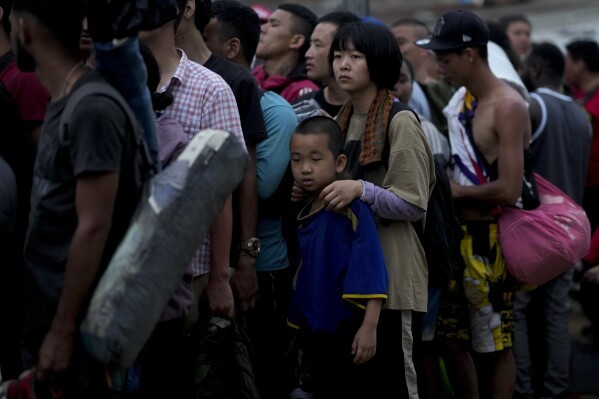Short Take: Why are Chinese migrants crossing the Mexican border?
Short Take is a periodic series where China Law & Policy briefly analyzes a current China-related issue and give our take. We aim for 500 words or less (around a 4-minute read).
Last week, New York Times’ reporter, Li Yuan, appeared on The Daily in a fascinating podcast that retold the story Gao Zhibian, a Chinese migrant who entered the United States by taking the perilous trek across Central America’s Darien Gap and up through Mexico, eventually crossing the Texas border. What caught my attention was the numbers Yuan reported. In 2023, 24,000 Chinese citizens took this path. That number surpassed the number of Chinese crossing the Mexican border from the previous 10 years combined. Prior to 2023, Chinese migration through Mexico was a mere 1,500 per year.
For years, if not decades, Chinese citizens have been able to travel visa-free to Ecuador. It is from there that they trudge through the Darien Gap, Central America, Mexico to reach the US. This has long been the route of choice for Chinese citizens unable to obtain a US student visa, an H1-B visa, or even a tourist visa. In other words, this has been the only way into the US for China’s migrant workers, the farmers from the countryside that moved to China’s cities to become the construction and factory workers. It is these workers that largely propelled China out of poverty, enabling it to become the second largest economy in the world. With increased income, they too shared in China’s economic miracle.
What has caused this sixteen-fold increase in the last year? No doubt China’s slowing economy, whose future is uncertain, is one reason. But it is more than that as Yuan shows in her interview with Gao Zhibian. Gao didn’t leave China solely because of the economy. After succeeding as a migrant worker, he ended up developing a small apartment building in the suburbs of Beijing, becoming a small-time landlord. But in 2018, the local government confiscated his land to sell to richer developers, with the local government retaining all the profits. Gao sought justice through China’s legal system in the form of petitioning to the national government. But he and his family were constantly harassed by the local authorities and Gao gave up his fight, losing his land and receiving little to no compensation. It was the Chinese legal system’s failure to provide justice or even establish a fair system that caused Gao to start researching migrating to the US through Central America.
Similarly, CNN, in its excellent, in-depth reporting on Chinese migration from Ecuador, featured a Chinese migrant that also fled China because of the lack of justice. Zheng Shiqing, a 28-year-old, high school migrant worker, left China after his factory wages were unlawfully withheld and the formal complaint he filed was ignored.
Economics certainly plays a major role in the increased Chinese migrants along the US’ southern border, but for both Gao and Zeng, it’s the Chinese legal system’s failure to provide for any form of redress that adds to the mix.[1] For China’s migrants, it is this lack of a rule of law that any hope that the legal system can protect the rights of the weak.
Recommended reading/listening:
Li Yuan and Michael Barbaro, How China broke one man’s dreams, New York Times’ The Daily (Feb. 15, 2024), 32 min listen.
Yong Xiong, Simone McCarthy and David Culver, The ‘walking route’: How an underground industry is helping migrants flee China for the US, CNN (Jan. 8, 2024), 15 min read.
[1] What doesn’t play a role are the far-right media’s unsubstantiated claims and racist tropes that these Chinese migrants are spies for the Chinese Communist Party.
 On Facebook
On Facebook By Email
By Email 

